
Book Now to Experience
Acne Treatment
1 Minute Self-Registration
Date should not be before minimal date
Author: Leila Tan|Updated: 23 July 2024
Do you have acne? Are you struggling with healing your acne? Well, in this article you will get all the information on treating acne. Pimples are a highly prevalent symptom of the skin disorder acne. Your face will often develop pimples. Acne is caused by clogged pores. Acne is most common in teenagers and young adults, but many adults also experience it. You can get treatment to get rid of acne on your skin and stop it from leaving scars.

1
What is acne?
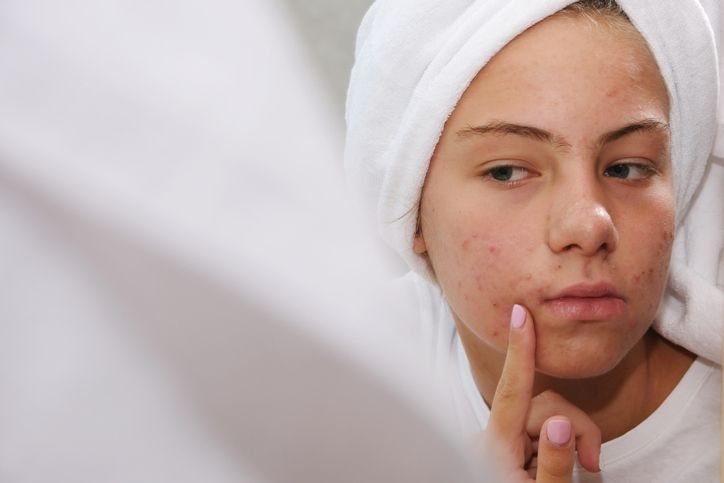
The most prevalent skin problem, acne is caused by clogged skin pores. Acne is also as a persistent, inflamed skin disorder that most commonly affects the face, shoulders, back, neck, chest, and upper arms and results in patches and pimples. Blackheads, whiteheads, and other types of pimples are caused by pore blockages. Pus-filled bumps on your skin that can be uncomfortable are also known as pimples.

2
How common is acne?
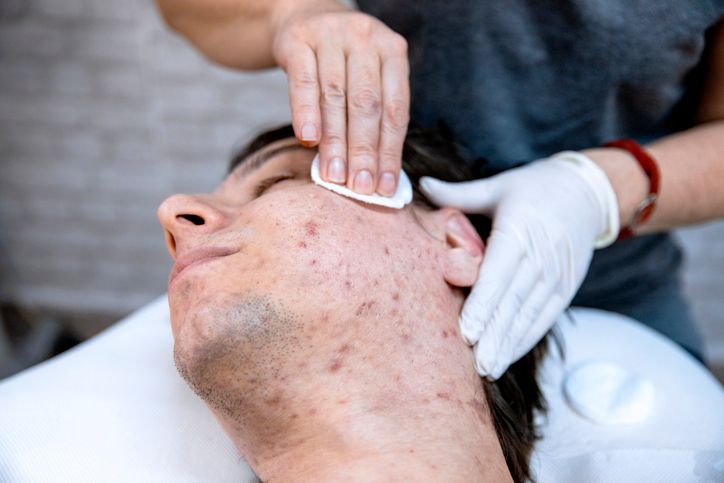
Know that you are not alone if you suffer from acne. The most prevalent skin ailment that people experience is acne. A minor form of acne will affect 80% of persons between the ages of 11 and 30.
Read More

3
Types of acne
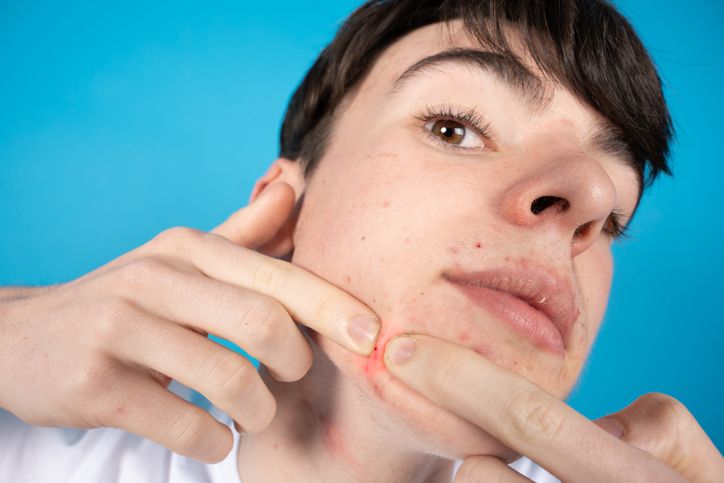
Fungal acne
When yeast accumulates in your hair follicles, fungal acne results. These could be swollen and irritating.
Cystic or Inflammatory acne
Deep, pus-filled nodules and pimples are the result of cystic acne. These might leave scars.
Blackheads
When sebum and dead skin cells combine to plug a pore, blackheads develop. Even though the rest of the pore is blocked, the top remains open. As a result, the surface acquires its distinctive black color.
Hormonal acne
Adults with hormonal acne have excessive sebum production, which clogs their pores.
Whiteheads
When sebum and dead skin cells clog a pore, whiteheads can also develop. Nevertheless, the top of the pore shuts up, unlike with blackheads. It appears to be a little bulge sticking out from the skin.
Nodular acne
Nodular acne is a severe type of acne that leaves lumps under the skin that are sensitive and nodular in appearance.

4
Where on my body will I have acne?
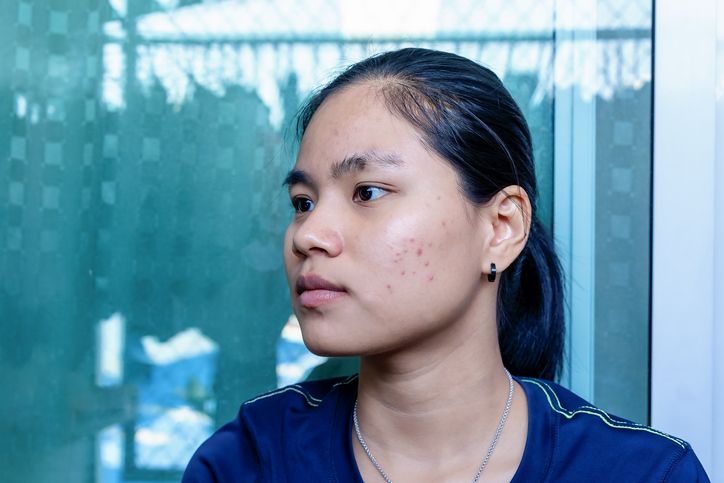
The areas of your body where acne is most likely to occur are:
Face
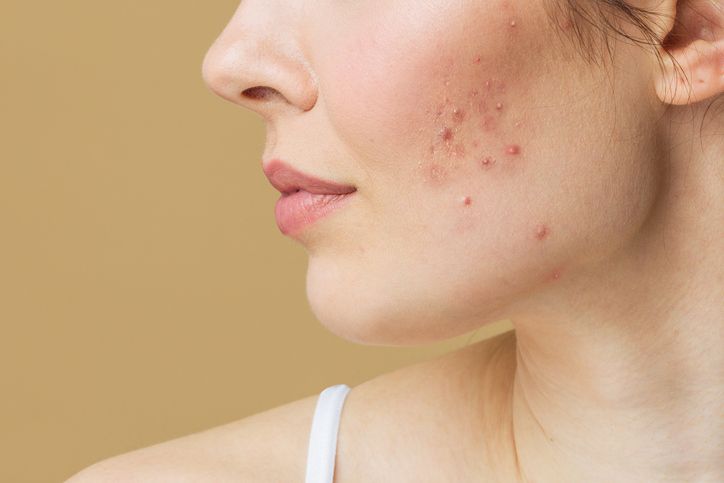
Chest
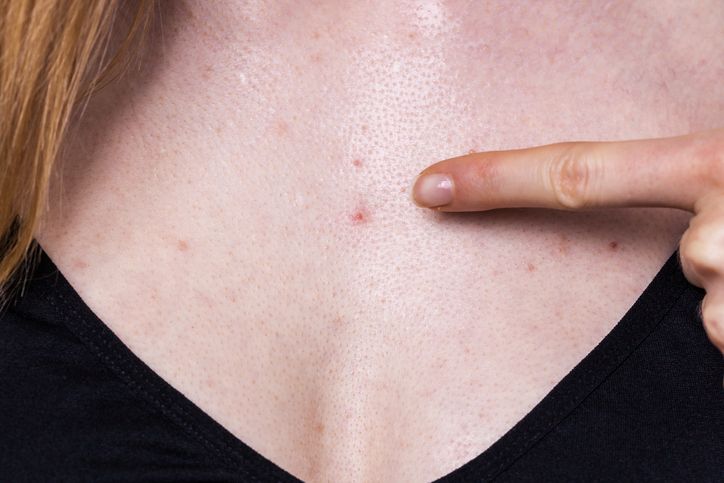
Upper back
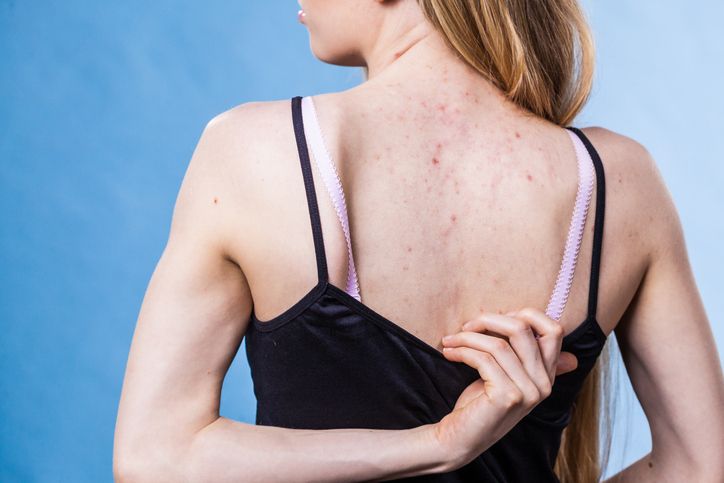

Book Now to Experience
Acne Treatment
1 Minute Self-Registration
Date should not be before minimal date

5
What causes acne?
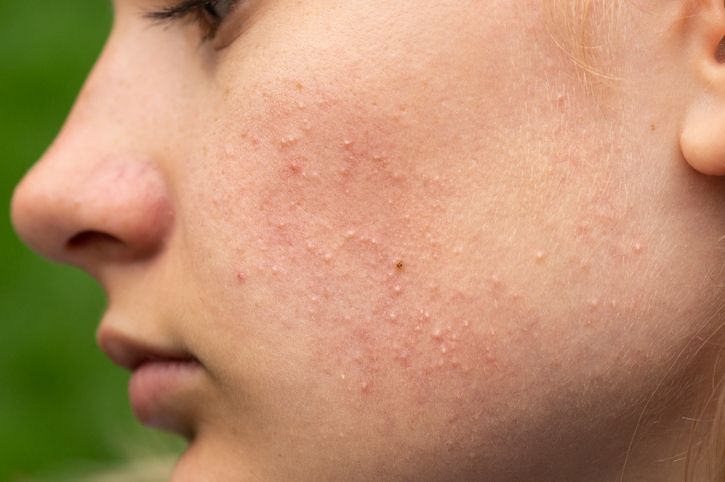
Acne is caused by clogged pores or hair follicles. Your hair is held in place by tiny tubes called hair follicles. A blockage develops when your hair follicles contain an excessive amount of material. You can get pore blockage from:
Sebum
an oily substance that acts as your skin's barrier of defense.
Bacteria
On your skin, tiny levels of germs naturally exist. Your pores may become clogged if you have too much bacteria.
Stress
Although stress cannot start acne, it can make it worse. Studies findings imply that as stress increases, acne severity rises as well.
Dead skin cells
Your skin sheds its cells frequently to make place for new ones to develop. Dead skin cells that are released by your skin might lodge in your hair follicles.
Nicotine
According to one study, smoking may contribute to acne in some women. The women in this study exhibited visible whiteheads and blackheads that frequently covered a sizable portion of their faces. A few people also got acne.
A pimple is produced when chemicals clog your pores and block your hair follicle. You experience swelling and pain as a result of this causing inflammation. Inflammation can also be seen on the skin as skin discoloration, such as the redness surrounding a zit.

6
How is acne diagnosed?
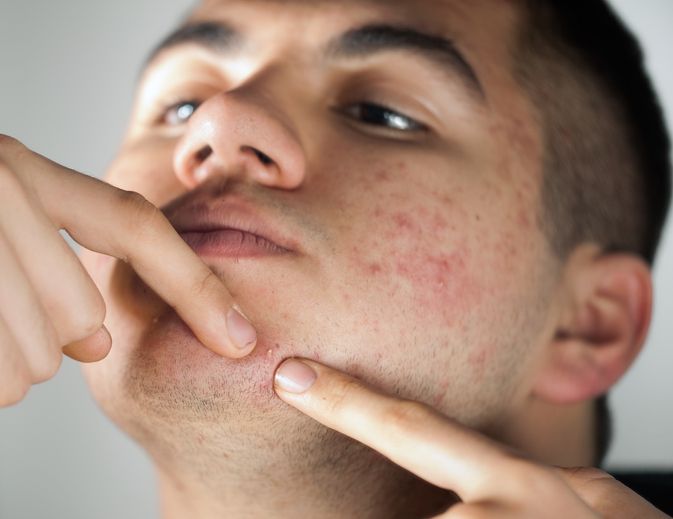
A dermatological examination by a medical professional can reveal acne. In order to learn more about your symptoms, the doctor will carefully examine your skin during this examination.
There are situations when what appears to be acne is not. While uncommon, what appears to be acne may instead be another disease. For instance, some individuals confuse acne inversa, also known as hidradenitis suppurativa, with regular acne. This condition's treatment is different from acne.
They might also inquire about factors that increase the likelihood of acne, such as:
Do you feel stressed out?
Do you have a history of acne in your family?
Do you get breakouts throughout your menstrual cycle, if you're a woman?
What medicines are you currently taking?
Where on your skin acne first emerges
What medications have you already tried?
The start of the breakouts
Read More

7
Who treats acne?
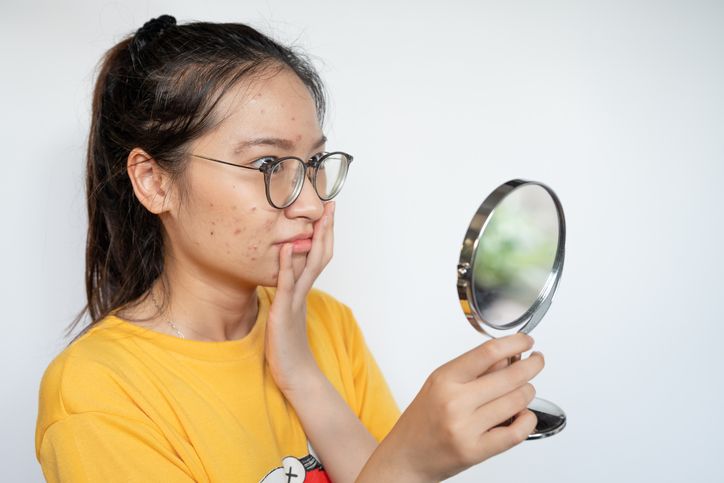
Acne can be identified and treated by a dermatologist or medical practitioner. A dermatologist can help if you have obstinate acne that doesn't get better with treatment.

8
How severe can acne get?
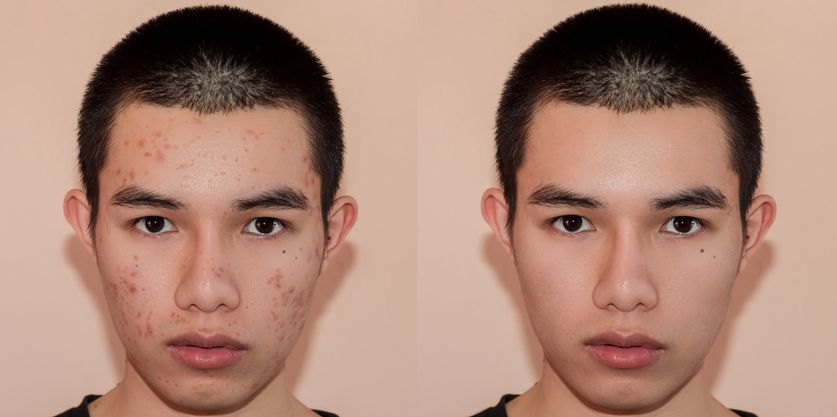
Grade 1 (mild)
with some papules and pustules thrown in, mostly whiteheads and blackheads.
Grade 2 (moderate or pustular acne)
The majority of the papules and pustules are on your face.
Grade 3 (moderately severe or nodulocystic acne)
many papules and pustules, sporadic nodules that are inflammatory. Your chest and back can also be impacted.
Grade 4 (severe nodulocystic acne)
huge number of nodules and pustules that are uncomfortable and inflammatory.

Book Now to Experience
Acne Treatment
1 Minute Self-Registration
Date should not be before minimal date

9
How acne treatment works?
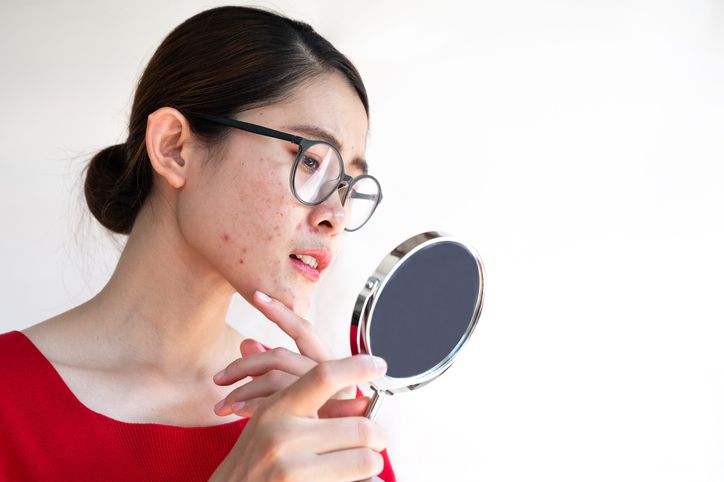
There are numerous methods for treating acne. Depending on your age, the type and severity of your acne, there are many treatment options available. Your doctor may advise you to use topical drugs, oral medications, or medicated therapies to treat your skin. The purpose of acne therapy is to both limit the development of new pimples and to repair any existing skin imperfections.

10
Acne Treatment by New Beauty
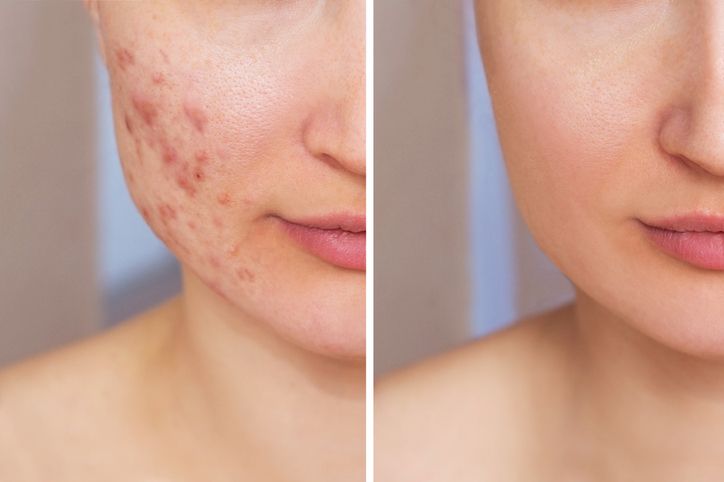
The Acne Treatment is a new treatment from New Beauty for skin that is prone to breakouts.
First, the dual spiral suction plus drainage technology exfoliates dead skin cells and clears clogged pores at the same time, reducing acne infection and inflammation. The face is then treated with a moisturizing serum to control sebum output and encourage collagen synthesis.
Future breakouts of acne are less likely if there is insufficient oil. Acne, blemishes, blackheads, whiteheads, pockmarks, enlarged pores, dry skin, acne scars, and dull skin tone are all goals of the acne treatment. Seize the opportunity to revive bright skin and increase your self-esteem!
Read More

11
Benefits of the Acne Treatment by New Beauty
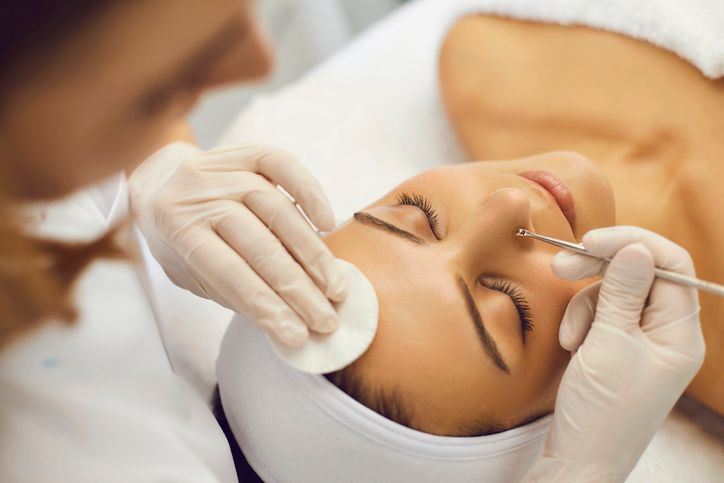
Removes Dead Skin Cells
Excess dead skin cells are removed using dual spiral suction and drainage technology to keep pores from becoming clogged in the future.
Hydrating Essence
A medical-grade moisturizing serum may penetrate the deepest layers of the skin to nourish and hydrate the skin tissues while also soothing acne-prone skin. Additionally, it soothes the sebaceous glands to stop overproduction of oil.
Visible Results
You will have less acne breakouts, acne scarring, and various types of acne as the treatment goes on. Watch as your skin becomes healthier, more moisturized, and lighter with less of an oily sheen!
Non-invasive Treatment
The acne treatment is non-invasive, so there is no need for oral antibiotics, surgery, incisions, injections, or acne medication. Most persons with moderate to severe acne, according to our in-house beauticians, are candidates for this treatment.

12
Topical medications
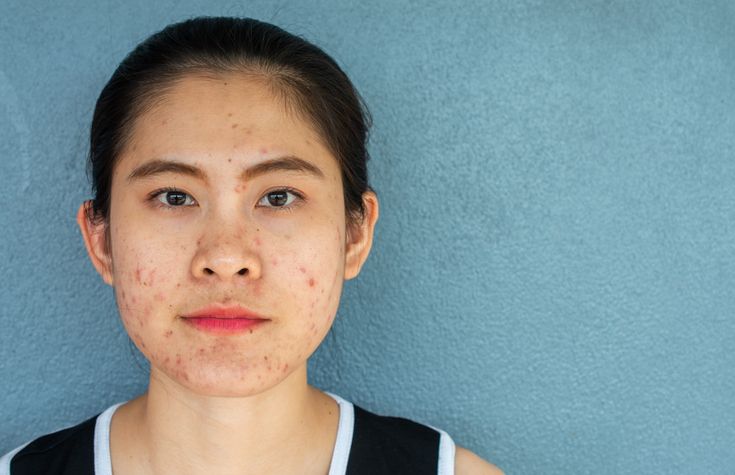
Your doctor might advise you to treat your skin with topical acne medications.
Topical acne medication can be applied topically to the skin in the same way as lotion or moisturizer would. Products containing one of the following substances could be among them:
Benzoyl peroxide
This is a leave-on gel or wash that is sold over-the-counter under the brand names Clearasil, Stridex, and PanOxyl. It takes aim at the surface bacteria that frequently makes acne worse. Your skin won't be as irritated by wash formulas and lower concentrations.
Salicylic acid
This is sold over-the-counter for acne as a lotion or cleanser. It aids in removing the skin's outermost layer of damage. Dead skin cells are removed by salicylic acid, which keeps your hair follicles from clogging.
Azelaic acid
This is a natural acid that can be found in several grains, including rye, barley, and wheat. It lessens edoema while also eradicating skin-surface bacteria.
Retinoids (vitamin A derivatives)
Blackheads, whiteheads, and clogged pores are the precursors to acne. Retinol, which is non-prescription and found in products like Retin-A, Tazorac, and Differin, helps break them up and prevent clogged pores.
The majority of persons are eligible for retinoid therapy. In order to stop the development of new pimples, you must apply these medications to the full area of acne-prone skin. Before seeing effects, you frequently need to use them for several months.
Antibiotics
The surface bacteria that aggravate and fuel acne are controlled by topical medicines like erythromycin and clindamycin. Benzoyl peroxide increases the potency of antibiotics.
Dapsone
Topical gel called Dapsone (Aczone) also has antibacterial qualities. It manages aggravated acne.

Book Now to Experience
Acne Treatment
1 Minute Self-Registration
Date should not be before minimal date

13
Oral medication
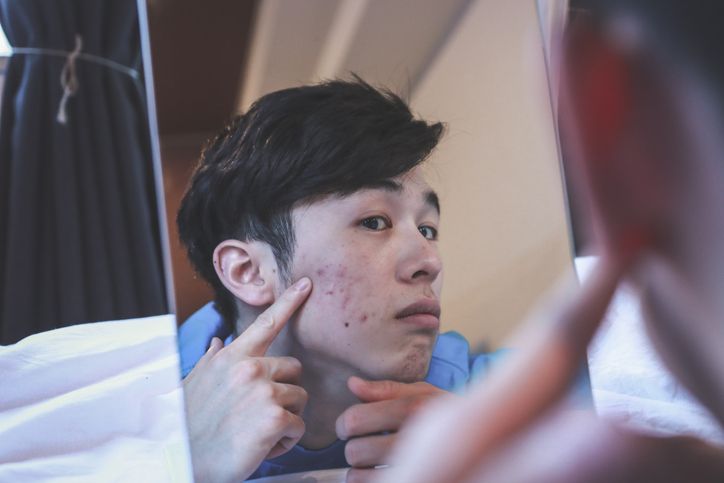
Antibiotics
Infection-related acne is treated with antibiotics. Tetracycline, minocycline, and doxycycline are common antibiotics for acne. For mild to severe acne, they are excellent.
Isotretinoin (Amnesteem, Claravis and Sotret)
An oral retinoid is isotretinoin. Oil gland size decreases caused by isotretinoin contribute to acne development.
Contraceptives
Certain contraceptives may occasionally be helpful for women and AFAB individuals who suffer from acne. Several different birth control pill varieties have received FDA approval for treating acne. Estrostep, Beyaz, Ortho Tri-Cyclen, and Yaz are a few examples of brand names. The main AFAB sex hormone, oestrogen, and progesterone are both present in these pills (a natural form of steroid that helps regulate menstruation).
Hormone therapy
Some acne sufferers find hormone therapy useful, particularly if their breakouts occur during menstruation or have irregular periods brought on by too much androgen (a hormone). Low-dose oestrogen and progesterone birth control pills are one form of hormone therapy, as is the drug spironolactone, which prevents the action of several hormones at the level of your hair follicles and oil glands.

14
Additional acne therapies
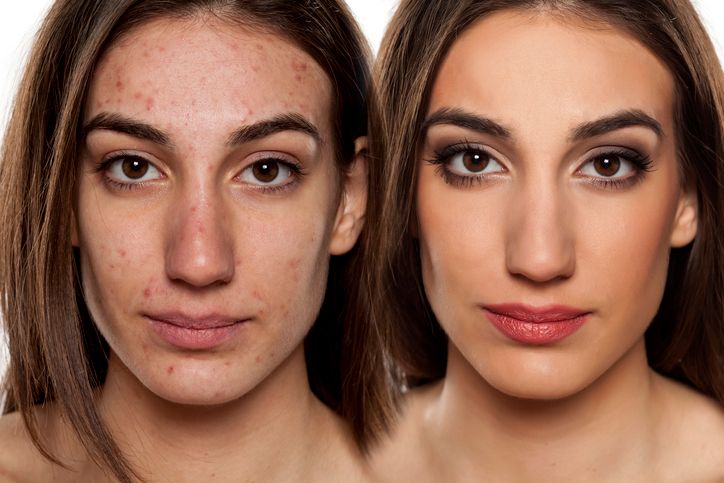
Steroids
Injecting steroids into big nodules can treat severe acne by reducing inflammation.
Chemical peels
With this procedure, the top layer of old skin is removed using specialised chemicals. The top layer of skin can be removed to reveal fresh, smoother skin that can minimise acne scarring.
Read More

15
How do antibiotics treat acne?
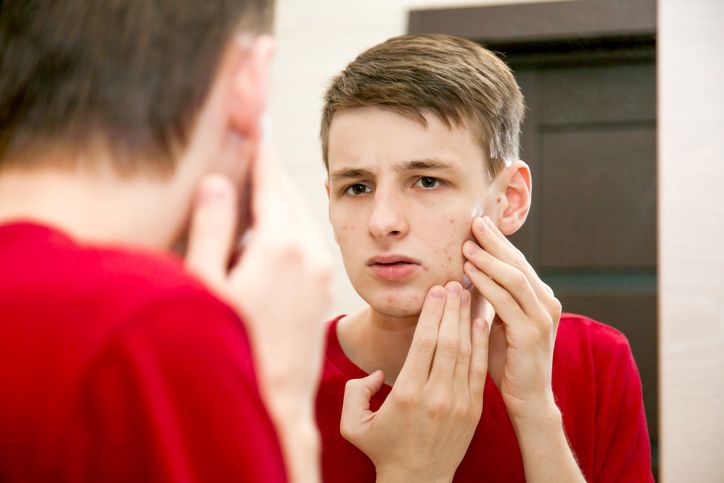
Antibiotics are drugs that work against bacteria. Some medications used to treat acne can help reduce inflammation. Acne is brought on by bacteria that clog your pores. The following are caused by antibiotics:
preventing bacterial influx into your body
eliminating bacteria
limiting the growth of germs

16
Home Remedies for acne treatments
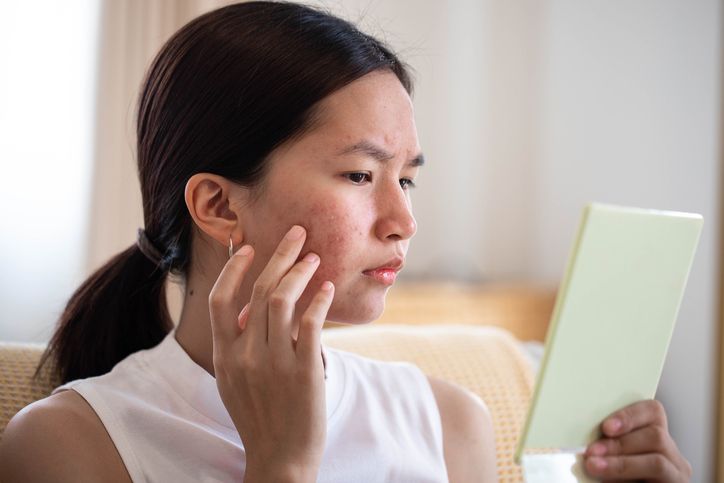
Tea tree oil
Since the bacteria that causes acne is naturally antibacterial and anti-inflammatory, tea tree oil may be able to eradicate it.
Due to its anti-inflammatory characteristics, tea tree oil can also aid in reducing the inflammation and redness of acne.
Aloe vera
Due to its inherent antibacterial and anti-inflammatory properties, aloe vera may lessen the look of acne and stop breakouts. Sugar, zinc, and amino acids are all present in aloe vera, which makes it a superb skin moisturiser and protector.
It is especially beneficial for those whose skin becomes dry after using various acne treatments. This can be considered a safe option for sensitive skin.
Green tea
High levels of catechins, a class of polyphenol antioxidants, are present in green tea. Some acne sufferers have too much sebum (natural body oils) and not enough antioxidants in their pores.
Chemicals and waste materials that can harm healthy cells are broken down by the body with the aid of antioxidants.
Honey
Honey has been used to treat skin disorders for hundreds of years because it is rich in antioxidants that can unclog pores. Utilizing unpasteurized honey, such as manuka honey, is crucial when using honey to treat various illnesses. To be successful, the honey you use must still have its beneficial microorganisms.
This will not just improve acne but also boost your immune system, reduce swelling and redness, and speed the healing of blemishes.

17
How long does acne take to clear up?
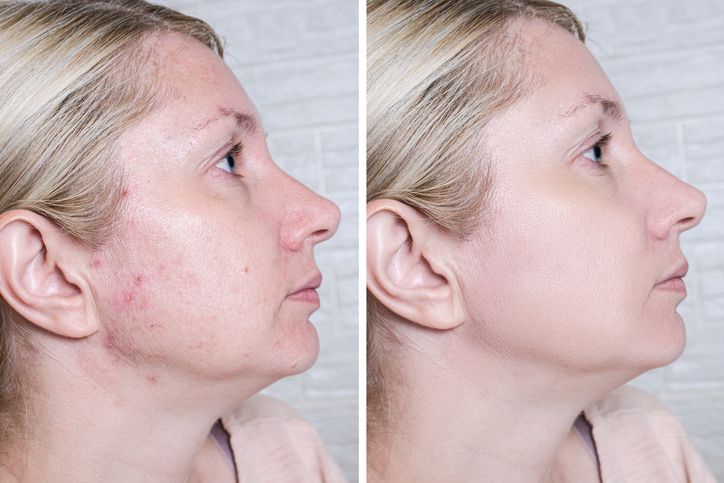
Acne breakouts can typically take one to two weeks to go away on their own. It may take up to several months or even years for the acne to clear up thoroughly.
Depending on your age, the type and severity of your acne, and how much work you're prepared to put in, your doctor will propose a treatment plan.

18
How to prevent acne
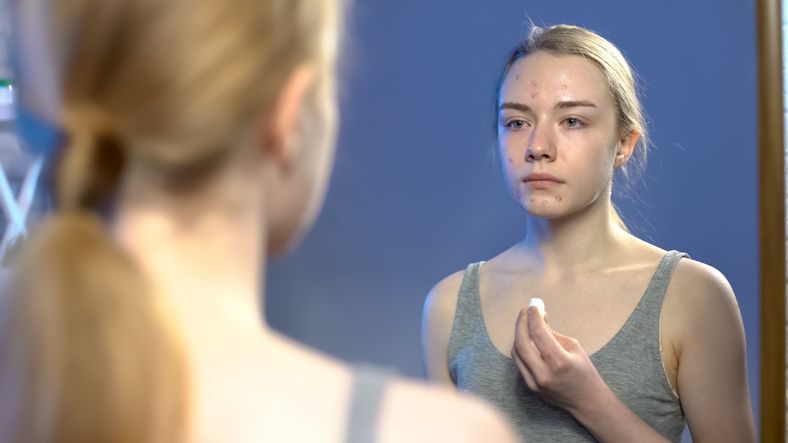
Using a facial cleanser and warm water to wash your face every day
Preventing your hands from touching your face.
Choose the right skin care products
Choose an effective treatment and continue it.

19
Conclusion
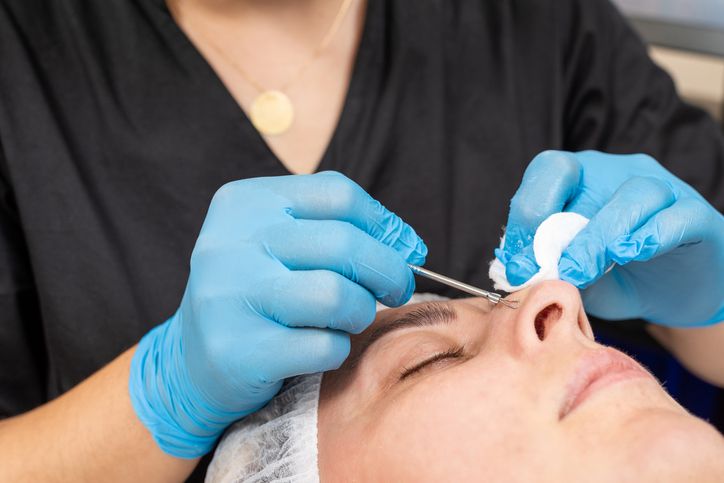
The most prevalent skin ailment, acne, can affect your mental well-being and sense of self. To get rid of obstinate acne, see a dermatologist or other healthcare professional. If at-home skin care regimens are unsuccessful, your acne may occasionally need a little extra assistance from a medicine to clear up. In order to avoid scarring, resist the urge to pick at your acne or pop pimples. Keep in mind that acne is transient and will go away with the proper skin-specific treatment.
FAQ
Adult acne: What is it?
Many adults, especially those in their 30s, 40s, and even 50s, still struggle with acne. It affects more women than men. It primarily affects the lower face, particularly the jawline, the area surrounding the lips, and the chin.
How does nutrition impact acne?
The effect that nutrition may have on acne is still a subject of inquiry. Numerous studies demonstrate that eating foods with a low glycemic index will reduce your risk of acne by preventing blood sugar rises. To determine whether cow's milk can worsen acne or not, more research is required.
If I have acne, can I wear makeup?
Yes, you can wear minimal makeup, but if at all possible, it's usually best to stay away from it. Use non-comedogenic makeup whenever possible and pick your products wisely. Use a mild cleanser to wash your face twice daily and after you've perspired. Before retiring to bed, always remove your makeup.

Book Now to Experience
Acne Treatment
1 Minute Self-Registration
Date should not be before minimal date
Recommended Articles
COPYRIGHT© NEW BEAUTY MANAGEMENT LIMITED 2026. ALL RIGHT RESERVED.




